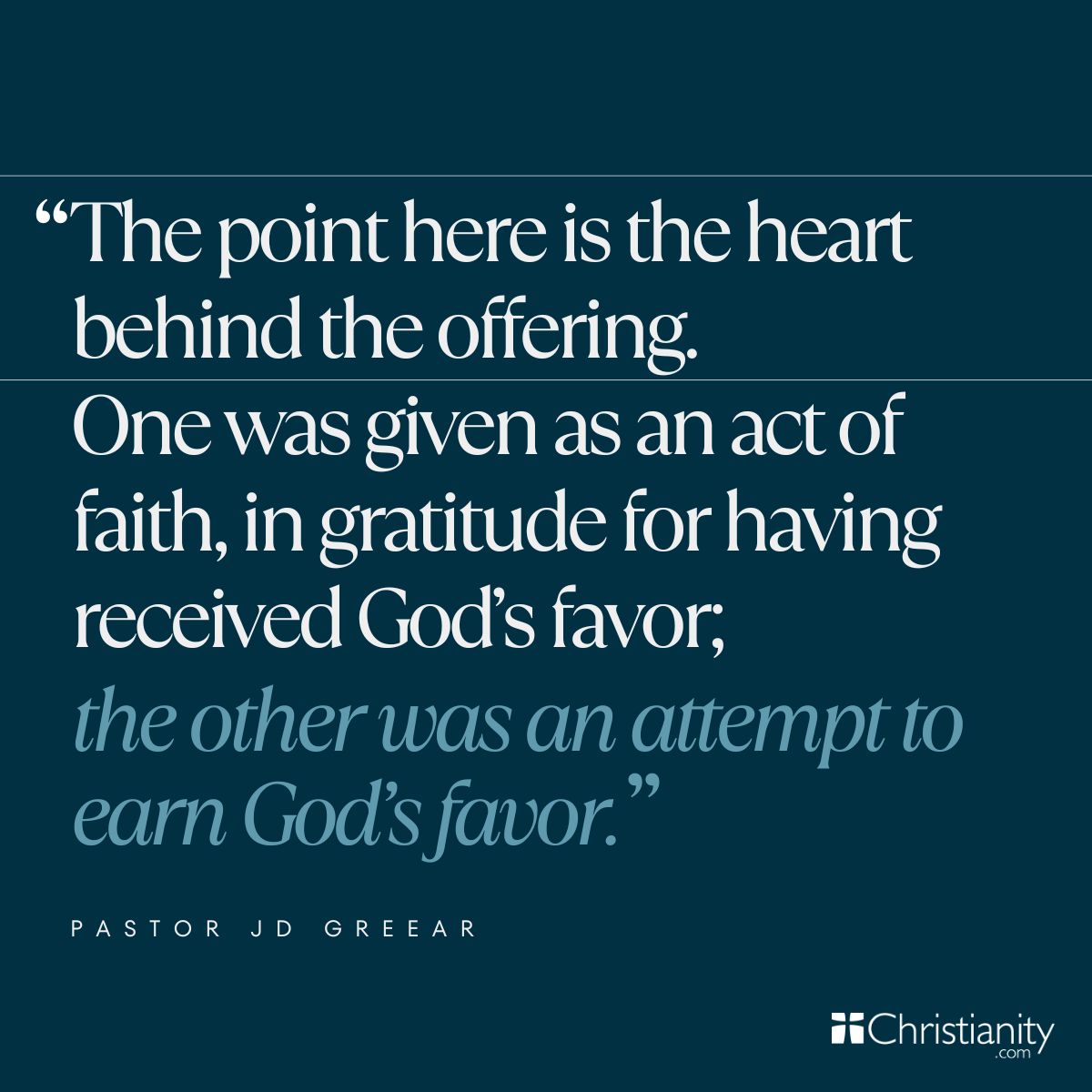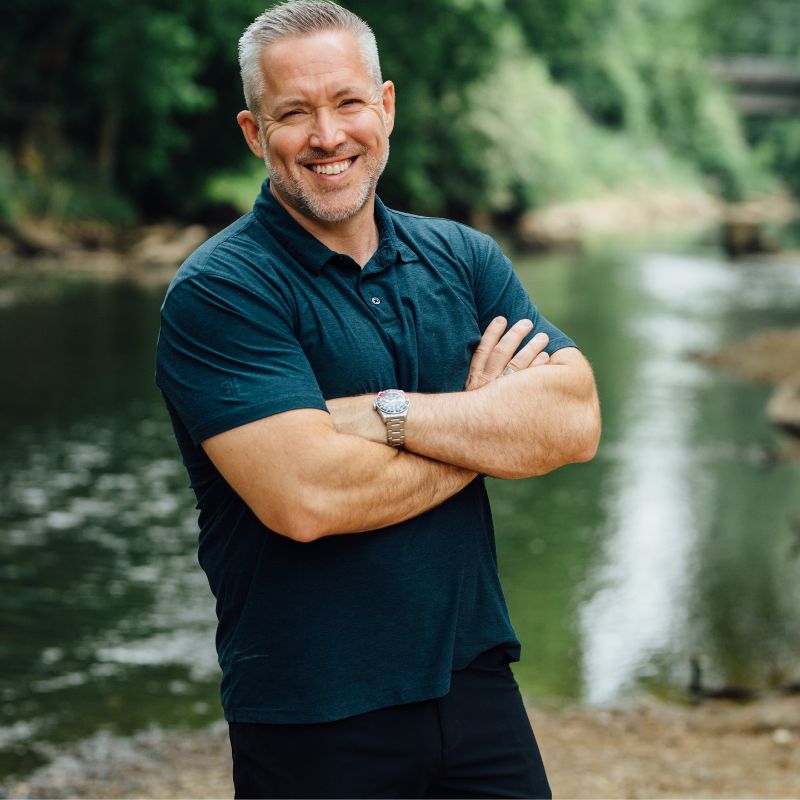
When my kids were younger, my wife, Veronica, and I took the whole family to Disney World. I know some people out there love Disney and think it’s worth all of the time, money, and effort to plan a trip. They do it every year because they think it’s worth the experience. I even know some “Disney adults” who craft their entire personality around the parks.
I was not loving it. I was simply dealing with Disney. I did it, not because I was loving it, but because I thought that’s what a good dad was supposed to do.
Now, before you object—“Oh, pastor, if you just used my Genie Pass strategy and did yada yada yada, it would all be different!”—no. Just no. I did all of that. I hired an expert agent and got the special passes and beat the lines as best they could be beaten. But still, I found myself in those dark, hot moments, wondering aloud, “You know, I’m not sure the fun we’re getting out of this is proportionate to the money we’re putting into it. Maybe, just maybe, this whole thing might just be a huge money-making scheme, and I’m the willing victim.”
Veronica said I was lacking in “Disney spirit.”
Anyway, we’re at Disney. It’s hot and miserable and it’s 11:30 AM, which means we’ve been at the park for 4.5 hours (because we got there at 7:00 for “extra magic hours!”). And we make the decision to take a break from the park and head back to the hotel to eat. Lunch by the pool, a little break … it seemed like a great plan.
Except that it meant our lunch was delayed about 30 minutes later than normal. To which one of my kids (I won’t say which one, but it was the boy) cried out, completely in earnest, “Dad, are you just gonna let us starve?”
I hope I responded with kindness and grace. But I distinctly remember what I wanted to say. It was something to the effect of, “Kid, I’m out thousands of dollars so you can ride Dumbo and the bumper cars—because you’re not even old enough for the cool rides—and you honestly think I brought you here … to starve?! Surely, all this investment and inconvenience would make it abundantly clear that I have your best interests at heart and that I’m worthy of your trust.”
But isn’t this what we do with God? How does he feel when we say we believe he has taken care of our sin debt—the greatest display of his love for us upon the cross—but we refuse to trust him for our daily provisions? I imagine it’s similar to how I felt at Disney World.
And we see that truth illustrated in the story of Cain and Abel.
In Genesis 3, right before Cain and Abel’s story, their parents, Adam and Eve, had sinned and felt ashamed of their nakedness. The first thing they did was hide and make themselves coverings. The 4th-century African theologian Augustine said that before this point, Adam and Eve had been fully clothed in God's love, acceptance, and glory. But sin had stripped that clothing away, so they went searching for cover.
Later that evening, God came for his evening walk with them, and they were nowhere to be found. So he called out to them, asking, “What are you doing? You can’t hide from me. It’s pointless to try to cover yourselves; you can never do it; you’ll have to let me do it.” He took a lamb and killed it in front of their eyes and made clothing from the lamb’s skin. Then he promised that a deliverer—one who would not only cover but take away their sin—would come through Eve’s offspring.
Then comes the story of Cain and Abel. In Hebrews 11, the author tells us how each of these sons gave God their offerings: “By faith Abel offered to God a more acceptable sacrifice than Cain, through which he was commended as righteous, God commending him by accepting his gifts. And through his faith, though he died, he still speaks” (Hebrews 11:4).
Abel gave “by faith.” This means that his offering showed a belief in God’s promised deliverer. It says, “God, have mercy on me, a sinner. This offering is not an attempt to cover my sin or earn your favor; you’ve already promised that to me in your deliverer. This sacrifice is a way of saying I believe that promise, and I belong to you.”
Cain made an offering, too. But it wasn’t accepted. Why? It must not have been, like Abel’s, “by faith.” I imagine his offering was like the religious attempts of all people throughout history, an effort to earn God’s favor. “God, look at me,” he was saying, “Look at all I’ve accomplished. I’m good enough to earn your favor. This should buy your goodwill.”
Abel offered a lamb, and Cain offered grain. But that’s not why God preferred Abel’s sacrifice over Cain’s (as if God’s a meat-eater and not a vegetarian). The point here is the heart behind the offering. One was given as an act of faith, in gratitude for having received God’s favor; the other was an attempt to earn God’s favor.

I see this all the time in the church. People get to a point where they realize they need God in their lives. So they clean themselves up and come to church. But if that’s all they’re doing, they’re still Cain. They hope that through some activity, some offering, they can make themselves acceptable to God. But the thing about “Cains” is that they are always left wondering if what they have done is enough. And that would make anyone resentful of people like Abel, who seem to have the full assurance of God’s favor.
More than that, Abel’s faith believed God would provide for his future, no matter what was to come. Genesis 4 tells us that Abel gave his first fruits, meaning that before any other animals were born, he gave God his first and best. Surely, he could have asked, What if no more animals are born? What will happen then? Yet his heart and his actions declared, God, I’ll trust you with this.
Cain, by contrast, didn’t trust God. He gave only after his full crop came in. Nowhere in Genesis 4 does it use “firstfruits” to describe Cain’s offering (though “firstfruits” is used to describe agricultural offerings all throughout the Bible). Cain wanted the assurance of having all he needed, all he wanted before he offered something to God.
Cain and Abel were both religious. They both brought offerings. Abel’s was accepted because it was given in faith, while Cain’s was rejected because it was not.
The Bible teaches that an eternal dividing line runs right down the middle of families, small groups, and local churches. Two people, sitting side by side, whose outside activities look identical, yet their hearts are polar opposites, make an offering to God. One offers in faith, believing God has already paid for his sin, and this offering is an act of gratitude. The other makes their offering hoping it will earn God’s acceptance. Everyone is either Cain or Abel.
Which one are you?
Photo Credit: SWN Design

Pastor J.D. completed his Ph.D. in Theology at Southeastern Baptist Theological Seminary. He serves as a member of the Board of Directors of Chick-fil-A, serves as a Council member for The Gospel Coalition, and recently served as the 62nd president of the Southern Baptist Convention. Pastor J.D. and his wife Veronica are raising four awesome kids.
"Editor's Note: Pastor JD Greear's "Ask the Pastor" column regularly appears at Christianity.com, providing biblical, relatable, and reliable answers to your everyday questions about faith and life. Email him your questions at [email protected]."




